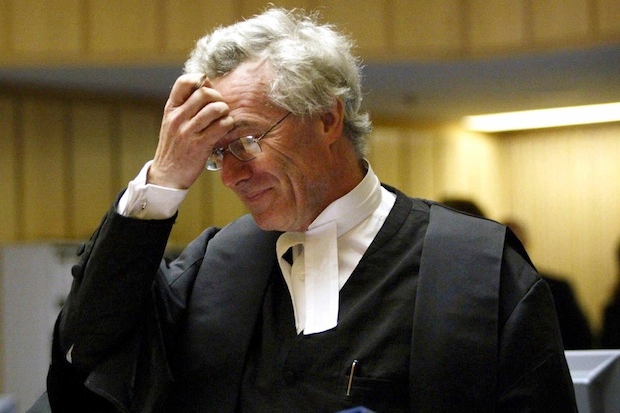Gosh, she’s done well out of notoriety, has Charlotte Proudman. After emerging from entire obscurity after outing an older male barrister for inappropriate remarks about her photo on LinkedIn – I don’t need to remind you about it, do I? – this young lawyer has now come into her own as a columnist on the Guardian today. There was me, thinking she was safely in a university environment doing more sterling work on FGM. Which, obv, I’m against. I mean the practice, not Ms Proudman’s efforts to rid the world of it, which I don’t expect is going to change much.
And, wouldn’t you know it, she’s dissing Jonathan Sumption, Supreme Court Judge, for his observations in an interview with my Evening Standard colleague Martin Bentham to the effect that a) it’ll be half a century before there are equal numbers of male and female judges and b) this may be because women barristers don’t, in Sheryl Sandberg’s catchy phrase, lean in enough; in fact, some may actually lean right back when it comes to the relentless pursuit of preferment.
For Ms Proudman, Lord Sumption’s comments ‘encapsulate his deepest fears that power vested in the old boys’ network could come under siege’. Funny, that’s not how I read his observations in the interview; I just thought they were remarkably, rather bravely, frank, given the likelihood he’d get jumped on. I’m not sure Jonathan Sumption has much to be scared about, really; his deepest fears seem to be about quite other things.
The piece is, as you’ll have gathered from the quote, pretty well unreadable but that’s the point: it’s a choice example of a particular mindset expressed for the benefit of others with the same grievances against the world. Prudently she does not touch on her LinkedIn controversy except to observe that other female barristers have shared with her their experiences of having men make inappropriate remarks about their clothing only, in one case, to have the Bar Council dismiss this as ‘banter’. A response which she feels ‘acts to cement and seal women’s subordinate position in the law’.
Usefully though, her byline photograph is the one that created all the fuss in the first place. It’s done her lots of favours, one way and another. Because, God knows, she’s not going to make a career on the back of her prose.







Comments